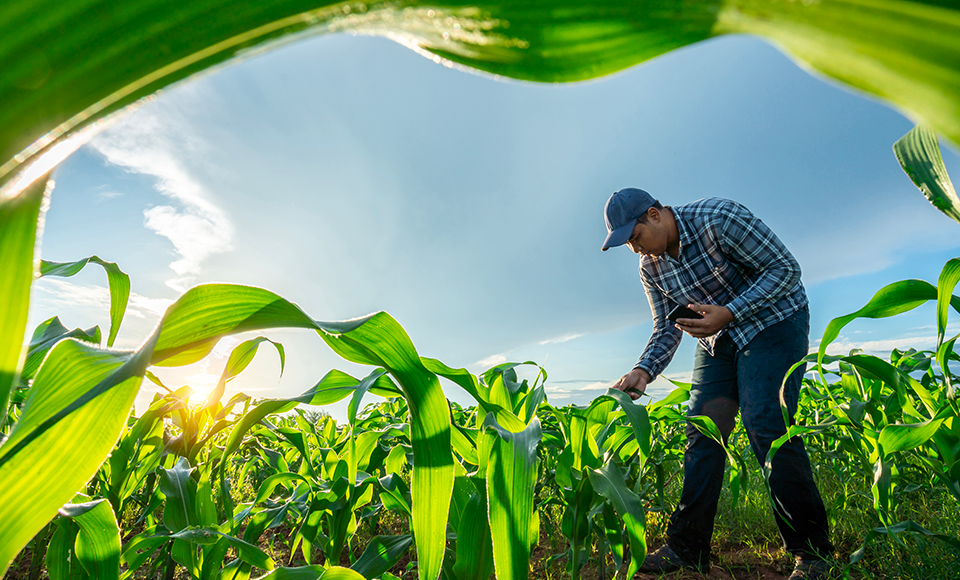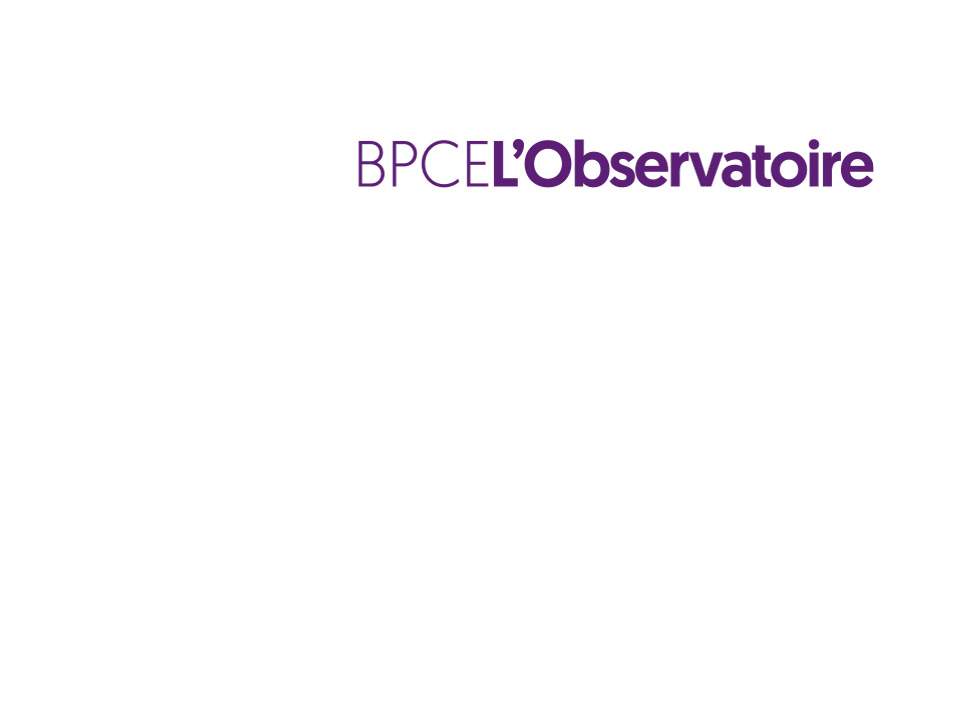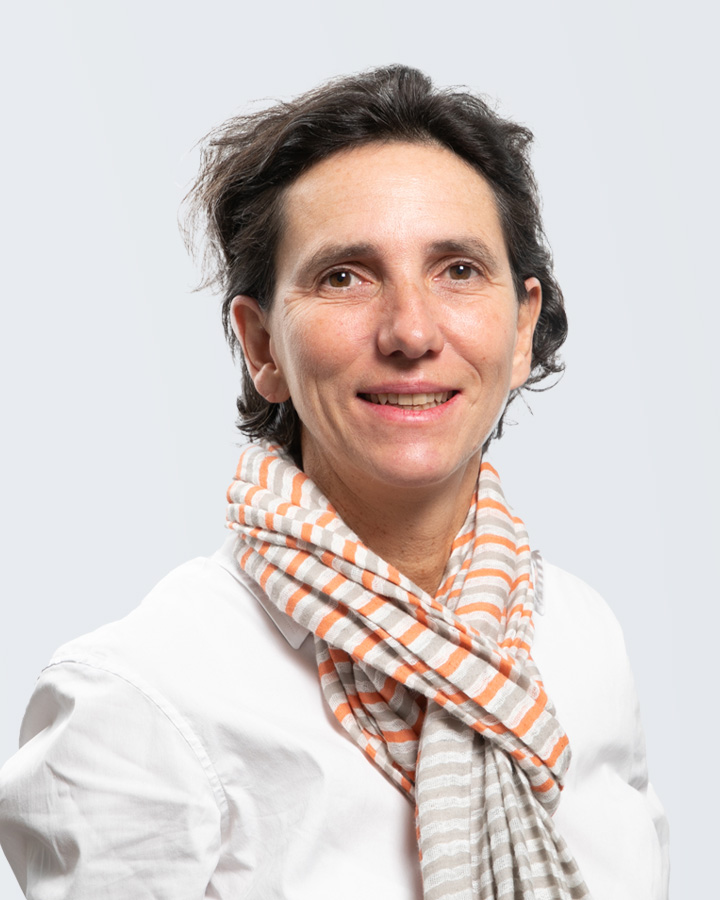

Agriculture-Viticulture: the outlook for the sector remains gloomy
[June 2025] Farm consolidation, a particularly cyclical industry, and the need to address a number of major challenges: for the past several decades, French agriculture has been facing numerous changes. It is against this backdrop that BPCE L’Observatoire publishes the results of the 4th edition of its Agriculture-Viticulture survey, conducted by telephone with 1,206 farm managers, including 500 winegrowers, between the dates of February 12 and March 18, 2025.


Economic difficulties are expected to continue in 2025, for winegrowers in particular
France, the EU’s top agricultural producer, generated €89bn in farming revenues in 2024, outpacing both Germany and Italy, each at €75bn. The sector has seen a decades-long trend of farm consolidation and an increase in the average size of agricultural holdings. This shift is set to continue in coming years, with a growing emphasis on agricultural businesses operating more in the manner of SMEs. Currently, 20% of the farmers included in the survey plan to invest in buying or leasing new land or vineyards (up from 17% in 2023), and 39% intend to invest in expanding or modernizing their buildings within the next two years (compared with 23% in 2023).
37% of farmers believe that their sales will decline in 2025.
Le secteur connait également une activité particulièrement cyclique, quelle que soit l’orientation. Aussi, après deux années de croissance en 2021 et 2022, la production a diminué en 2023 et plus encore en 2024. Cette dernière année reste frappée par des conditions météorologiques très défavorables en raison d’une pluviométrie excédentaire conjuguée à un déficit d’ensoleillement. En recul de 7,5 %, la production agricole aurait même coûté 0,2 point de croissance à l’économie française en 2024. Par produit, la chute est particulièrement forte pour les fourrages (− 24,3 %), le vin (− 21,7 %) et les céréales (− 20,4 %).
The sector is also characterized by highly cyclical nature of its activities, regardless of specialization. After two years of growth in 2021 and 2022, production declined in 2023 and dropped even further in 2024. This past year was marked by particularly unfavorable weather conditions, with above-average rainfall combined with a lack of sunshine. With a 7.5% drop in 2024, agricultural output is estimated to have cost the French economy 0.2 percentage points of growth last year.
By product, the decline was especially pronounced for forage (−24.3%), wine (−21.7%), and cereals (−20.4%). The outlook for 2025 consequently remains gloomy. In terms of sales, 37% of farmers expect a decrease, compared with only 17% who anticipate an increase. The outlook for profitability is even more negative: 44% expect their profits to decline, against just 11% who foresee an improvement. Pessimism is even more prevalent among winegrowers: 53% expect to see a decline in their sales while 62% anticipate a deterioration in their profitability, even before the announcement of increased US tariffs.
Farmers’ main priority: the transfer and succession of their farms
The main concerns of the farmers included in the survey continue to center on preparing for farm transfer/succession or retirement (28%) and financing cash flow requirements (19%), followed by improving their health protection, which ranks in third position (16%). In the background, the question of generational renewal remains a major challenge for a population whose average age is 53: half of the total number of farmers will potentially retire within the next 10 years and, for nearly 60% of those aged 55 or older, no successor has currently been identified.
This proportion remains very high for those aged 65 and above at 46%. A third of farmers expect to stop working within the next five years. Among this group, retirement remains, unsurprisingly, the main reason for ceasing their activity, though it is now significantly less prevalent than in the previous survey (76% vs. 87% in 2023). In contrast, economic difficulties are emerging as the second most cited reason, with 10% of farmers giving this as their motivation for stopping work – twice as many as in 2023.
66% expect their production to be affected by climate change.
Climate change remain a major concern: 66% of farmers expect it to affect their production, rising to 77% among winegrowers. Operational impacts are increasing; nearly half of farmers and two-thirds of winegrowers report having adjusted one or more of their farm management practices as a result. Farms engaged in agroecological practices and/or those with all or part of their production certified organic have made more changes.
Water-related issues have a significant impact on farm operations: 44% of farmers have faced water restrictions in the past five years, 19% use an irrigation system, and 45% believe their farm will be subject to water restriction measures within the next five years.
Diversification and agroecology: changes vary from sector to sector
Farmers’ adoption of agroecological practices is rising significantly, increasing from 49% in 2023 to 57% in 2025. Winegrowers and market gardeners (fruit, vegetables, flowers) are now the most committed to agroecology, with engagement rates of 77% and 74% respectively. For winegrowers, this also represents a 12-percentage-point increase over two years. Diversification continues, with the adoption of soil conservation agriculture remaining the most common activity and seeing strong growth (50% of farmers already practice it, a 15-point increase over two years), followed by environmental certification (32% already certified, up 8 points).
Solar energy production is the activity most frequently considered for the future (28%). It is more often of interest to large farms (44%) – particularly those involved in livestock (excluding cattle) and mixed crop-livestock farming. As in 2023, arable farming and viticulture remain less engaged. Labeled production is already practiced by 24% of farmers, especially winegrowers (41%), market gardeners (37%), and cattle breeders (28%).
Organic production remains steady (14% of farmers, up 1 point from 2023). Non-cattle livestock farming, viticulture, and market gardening are more likely to be at least partly organic (28%, 26%, and 18% respectively). The main adaptation techniques implemented are the use of less water-intensive crops (38%), the installation of weather sensors (30%), rainwater collection tanks (29%), and natural ventilation (28%). Among winegrowers, controlled grassing (78%), canopy management (60%), and the installation of weather sensors (53%) make up the top three techniques most often adopted to adapt to the effects of climate change.
Faced with climate change and water restrictions, five distinct farmer profiles have been identified
The detached (19%): they are minimally exposed, not very engaged, and not very concerned. The detached are older and not very involved in innovation or the adaptation of their activities. Located mainly in the northwest of France, they manage small farms with low economic potential. They overwhelmingly reject environmental initiatives and express no need for adaptation or concern about climate or water restrictions. They have no plans for the transmission of the farm or to make any changes.
The confident (19%): They are engaged but minimally exposed and not very concerned. Highly committed to agroecology, with advanced farming practices, they are distinguished by their high degree of confidence: few climate concerns, no fears about water restrictions, and no anticipation of risk. However, they do not claim to have strong growth or investment momentum and are not seeking specific support.
The passive (16%): they are highly exposed but not very concerned. Currently subject to water restrictions, they are not worried about the long term. They are characterized by a low level of climate concern and few concrete adaptations. They are less likely to seek support, particularly on strategic issues (retirement, investment). These are relatively new farmers who seem to want to continue their activity without major changes, focusing on stability.
The anticipators (18%): they are minimally exposed but very concerned. They have a particularly high level of environmental and climate awareness, although they are not yet directly impacted today. These are relatively young or recently established farmers who are taking a long-term approach (transfer, adaptation, modernization). They are proactive in their strategies but cautious in their immediate actions, favoring anticipation over knee-jerk reactions.
The engaged (27%): they are highly exposed and very concerned. Younger, they are farmers committed to an advanced agroecological transition, very concerned about climate change and water restrictions. They have already adapted their practices (crops, energy, irrigation, etc.) and are implementing concrete resilience strategies. More involved in collective initiatives (certification, multi-party projects), they are proactive, open to innovation and adjustments.
90% of farmers lack information about support measures for the energy transition
When asked about their level of awareness regarding support and guidance programs for the energy transition, 66% consider themselves well informed. However, this percentage hides a less impressive level of information, as only 11% rate their awareness as very good or excellent, and more than a third (34%) admit that their level of information is poor (12% very poor and 22% rather poor). Nearly 9 out of 10 farmers express a lack of information on support and guidance programs for the energy transition.
33% of farmers plan to invest in equipment in 2025.
To engage further in agroecological practices, the farmers included in the survey express greater expectations than in 2023, especially regarding investment in equipment (33% compared to 27% in 2023), acquiring more knowledge (30% compared to 25%), and receiving technical assistance (29% compared to 22%).
Overall, only 17% of farmers say they have no specific needs on the subject – a rate that has dropped by 10 percentage points in the space of two years. It is in this context that Groupe BPCE, through its Banque Populaire and Caisse d’Épargne retail banking networks, has been supporting the development of farmers and winegrowers across the country for more than 30 years.
.
Authors’ biographies

José Bardaji
SEE THE BIOGRAPHY